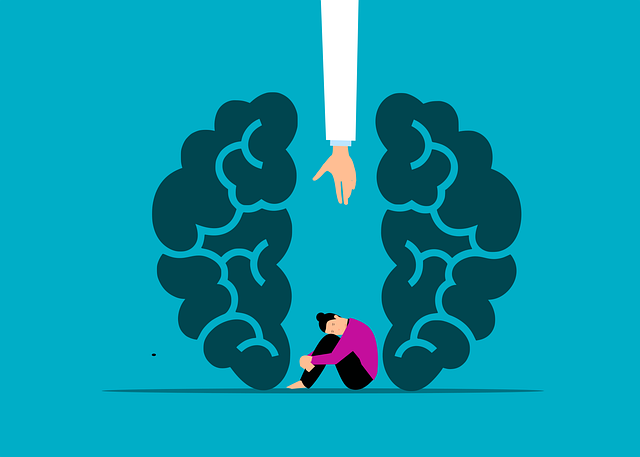Emotion regulation techniques are key to managing chronic pain at Littleton Chronic Pain Therapy, breaking the cycle of emotional distress and physical discomfort. Through teaching positive thinking, mindfulness meditation, cognitive reframing, and relaxation techniques, patients gain control over their emotions, improving well-being and potentially reducing medication reliance. This holistic approach combines evidence-based practices with compassionate support, empowering individuals to lead fulfilling lives despite ongoing physical challenges.
Emotion regulation techniques play a pivotal role in managing chronic pain, offering a path to improved quality of life. This article explores how Littleton Chronic Pain Therapy serves as a beacon, teaching powerful tools to navigate emotional challenges. We delve into the science behind emotion regulation and its profound impact on pain management. Discover practical strategies, including mindfulness, cognitive reframing, and relaxation techniques, providing actionable insights for effective self-care.
- Understanding Emotion Regulation and its Impact on Chronic Pain
- The Role of Littleton Chronic Pain Therapy in Teaching These Techniques
- Practical Strategies for Effective Emotion Regulation
- Integrating Mindfulness, Cognitive Reframing, and Relaxation Techniques
Understanding Emotion Regulation and its Impact on Chronic Pain

Emotion regulation techniques play a pivotal role in managing chronic pain, as the mind-body connection is deeply intertwined. Understanding and mastering these techniques can significantly impact individuals suffering from persistent pain conditions, such as those often seen in Littleton Chronic Pain Therapy settings.
Chronic pain can be exacerbated by emotional distress, creating a vicious cycle. When left unaddressed, negative thinking patterns and low mental health awareness can intensify physical discomfort. However, through the teaching of emotion regulation strategies, patients are equipped with powerful tools to break free from this cycle. By fostering positive thinking and building confidence, individuals can gain control over their emotional responses, leading to improved overall well-being and potentially reduced reliance on pain medication. This holistic approach to chronic pain therapy not only alleviates symptoms but also empowers patients to embrace a more fulfilling life despite ongoing physical challenges.
The Role of Littleton Chronic Pain Therapy in Teaching These Techniques

Litttenfield Chronic Pain Therapy plays a pivotal role in teaching emotion regulation techniques, offering a holistic approach to managing both physical and emotional pain. Through specialized programs, individuals learn to navigate their feelings effectively, fostering improved mental wellness. One powerful tool in this process is mindfulness meditation, integrated into therapy sessions to enhance emotional well-being.
The expertise of Littleton Chronic Pain Therapy extends beyond conventional treatments, focusing on the development of Mental Wellness Coaching Programs. These programs empower individuals with practical techniques for promoting emotional well-being, enabling them to actively participate in managing their pain and associated emotions. By combining evidence-based practices with a compassionate support system, Littleton Chronic Pain Therapy ensures that clients not only learn effective emotion regulation strategies but also cultivate lasting resilience.
Practical Strategies for Effective Emotion Regulation

Emotion regulation techniques are practical tools that individuals can learn to effectively manage and navigate their emotional responses. At Littleton Chronic Pain Therapy, we emphasize the importance of teaching these skills as part of our holistic approach to patient care. Strategies such as mindfulness practices, cognitive reframing, and relaxation techniques empower individuals to gain a sense of control over their emotions in challenging situations.
For mental health professionals, integrating risk management planning into their practice is crucial. This involves helping clients develop coping mechanisms tailored to their unique experiences, especially when dealing with complex cases. Additionally, Healthcare Provider Cultural Competency Training plays a vital role in ensuring empathic communication and understanding of diverse patient backgrounds. Empathy building strategies, when incorporated into therapy sessions, foster deeper connections and enable professionals to offer more personalized support, ultimately enhancing the overall therapeutic process.
Integrating Mindfulness, Cognitive Reframing, and Relaxation Techniques

Integrating mindfulness, cognitive reframing, and relaxation techniques can significantly enhance emotional intelligence and mood management, especially for individuals dealing with chronic pain in Littleton. Mindfulness practices encourage individuals to focus on the present moment, reducing rumination on past events or worry about the future. This heightened awareness allows for better recognition of emotions as they arise, enabling more effective regulation.
Cognitive reframing involves challenging and changing negative thought patterns, which can significantly influence emotional responses. By shifting perspectives, individuals learn to view challenges differently, fostering a greater sense of control and confidence boosting. Relaxation techniques, such as deep breathing exercises or progressive muscle relaxation, provide immediate tools for calming the mind and body, thereby facilitating more rational decision-making during moments of heightened emotion. These integrated approaches have proven effective in chronic pain therapy, offering holistic support for emotional well-being.
Emotion regulation techniques are powerful tools for managing chronic pain. As discussed, Littleton Chronic Pain Therapy plays a pivotal role in teaching these skills, offering a comprehensive approach that integrates mindfulness, cognitive reframing, and relaxation techniques. By understanding the impact of emotion regulation on chronic pain and adopting practical strategies, individuals can significantly enhance their quality of life. Embracing these techniques enables folks to navigate their pain journey with greater resilience and emotional well-being.














